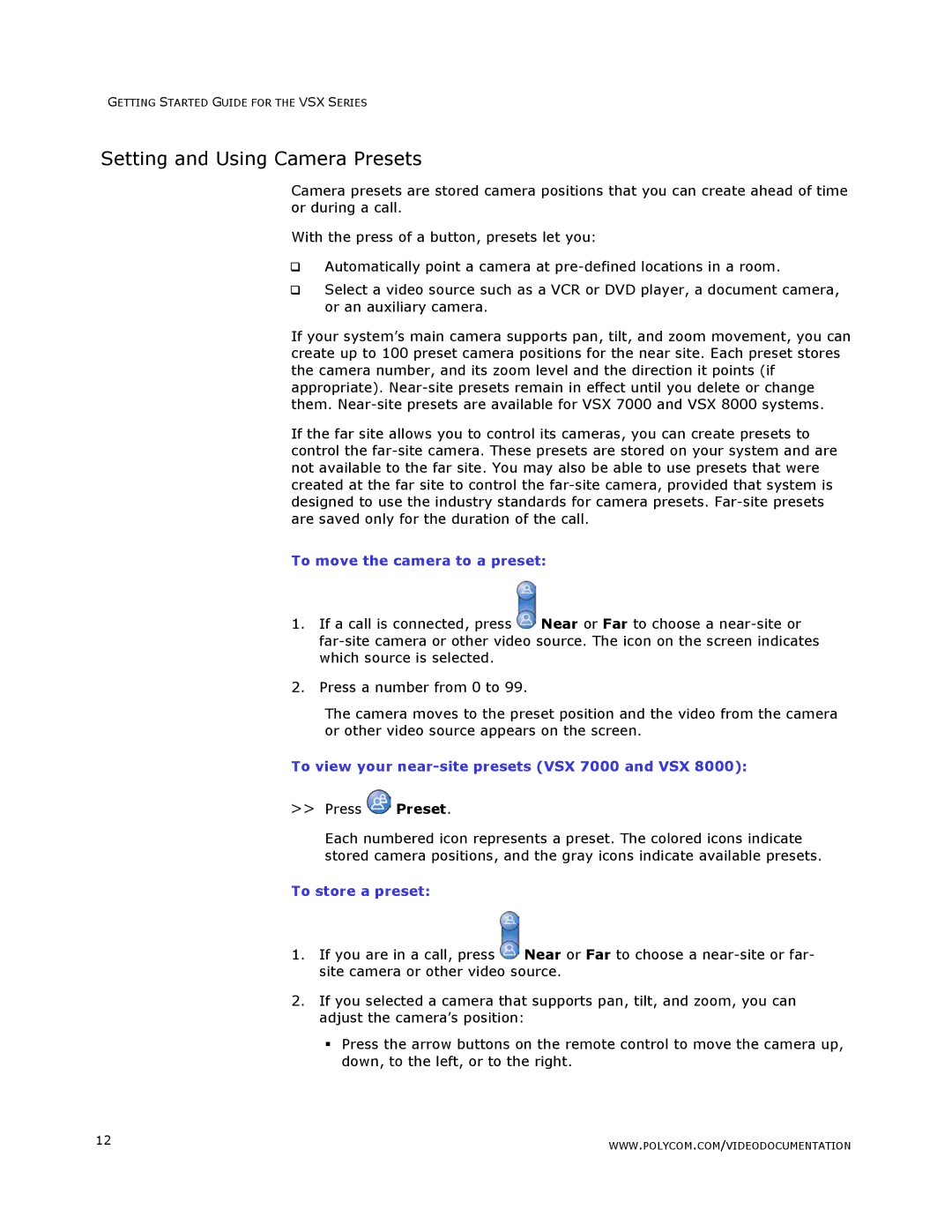GETTING STARTED GUIDE FOR THE VSX SERIES
Setting and Using Camera Presets
Camera presets are stored camera positions that you can create ahead of time or during a call.
With the press of a button, presets let you:
Automatically point a camera at
Select a video source such as a VCR or DVD player, a document camera, or an auxiliary camera.
If your system’s main camera supports pan, tilt, and zoom movement, you can create up to 100 preset camera positions for the near site. Each preset stores the camera number, and its zoom level and the direction it points (if appropriate).
If the far site allows you to control its cameras, you can create presets to control the
To move the camera to a preset:
1.If a call is connected, press ![]() Near or Far to choose a
Near or Far to choose a
2.Press a number from 0 to 99.
The camera moves to the preset position and the video from the camera or other video source appears on the screen.
To view your near-site presets (VSX 7000 and VSX 8000):
>>Press ![]() Preset.
Preset.
Each numbered icon represents a preset. The colored icons indicate stored camera positions, and the gray icons indicate available presets.
To store a preset:
1.If you are in a call, press ![]() Near or Far to choose a
Near or Far to choose a
2.If you selected a camera that supports pan, tilt, and zoom, you can adjust the camera’s position:
Press the arrow buttons on the remote control to move the camera up, down, to the left, or to the right.
12 | WWW.POLYCOM.COM/VIDEODOCUMENTATION |
|
